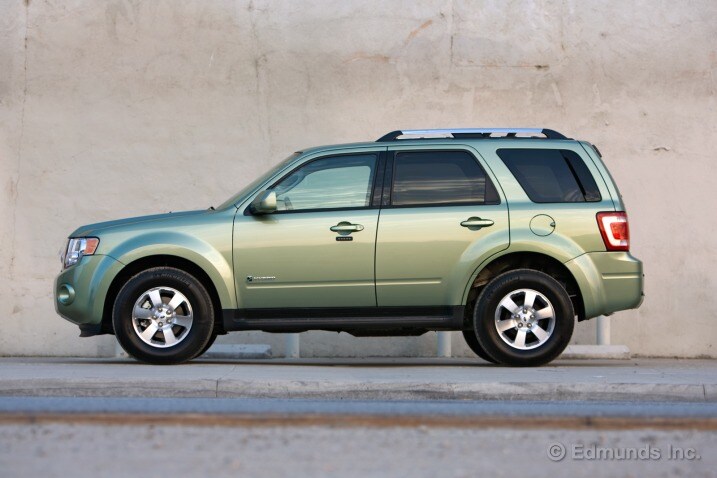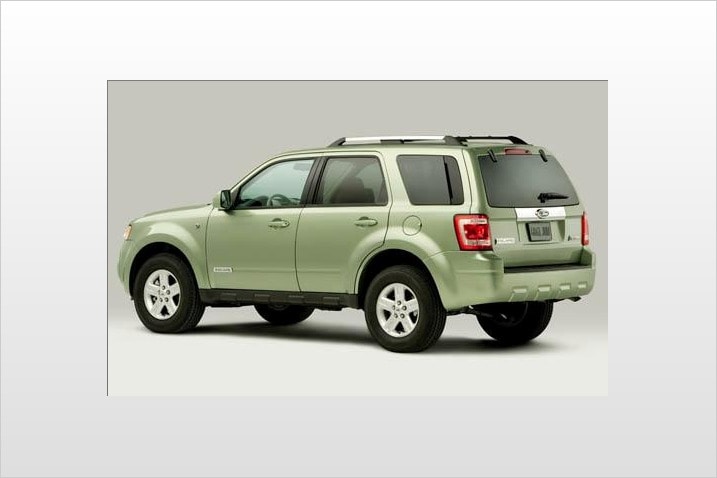Hybrid and diesel tax credits
The government will reward you for buying certain hybrid-electric and alternative-fuel vehicles. And there are some pretty impressive hybrid tax credits to be had, depending on which environmentally friendly model you buy.
Tax credits are much better than tax deductions because the full amount comes right off the top of any tax you owe — and, unlike deductions, you don't have to itemize. Tax deductions reduce your tax burden in accordance with your tax bracket. That means if you get a tax deduction for a $300 purchase and are in the 31 percent tax bracket, you're really only getting a cash tax savings of about $100. But if it was a credit (and you owed at least $300 in tax) you'd get the full $300 cash tax savings.
For 2009, there's one (non-hybrid) alternative-fuel vehicle — the Honda Civic GX, which runs on compressed natural gas — that gets a credit. At $4,000 the GX credit is also the largest one available.
"Clean diesel" vehicles are now also eligible for credits as advanced lean burn technology vehicles. There are currently nine eligible clean-diesel vehicles: one from Audi, two from BMW, three from Mercedes-Benz and another three from Volkswagen. The clean diesel credit ranges from $900 on the BMW 335d Sedan to $1,800 on a Mercedes GL 320 BlueTEC.
If you want to keep track of all the current tax credits for hybrids and alternative fuel vehicles follow the link for a complete listing.
The full amount of the credits is only available on the first 60,000 eligible vehicles an automaker sells. Toyota's Prius has sold so well that credits have been phased out for all Toyota/Lexus vehicles. Ford begun its phase out stage in April 2009. The Ford Escape Hybrid is still eligible for a $1,500 tax credit going into October, 1 2009. Then it will reduce by 25 percent until the credits expire on April 1, 2010. All of Honda's hybrid credits expired at the end of 2008.
"There are not a lot of credits available to the average taxpayer so this is a unique opportunity," says Barbara Lipson, a certified public accountant and tax specialist for Frank & Co. in McLean, Virginia. "If someone is thinking about buying a hybrid, they should do it sooner rather than later."
But there are some caveats. First, you'll pay a premium on any hybrid or alternative-fuel vehicle compared to the same gas-only vehicle. Depending on the model, it could be several years before the money you save in gas and on taxes offsets that additional cost. (See "Do Hybrids Make Financial Sense Yet?".)
Next, you need to determine if you can take advantage of the full amount of the credit, depending on whether you're affected by the Alternative Minimum Tax (AMT). Speaking with an accountant is the best way to determine eligibility.
Finally, credits help you if you owe taxes for the year in which you bought the car — not the year before or any years after, according to CPA Rhonda Monro of Romeo, Michigan.
The IRS details the tax credits on qualified hybrid vehicles. There may be state tax incentives, too: Check the U.S. Energy Department's chart of state and federal tax incentives and laws.
You used to be able to take a deduction based on the book value of a car donation, even if there was little chance you'd ever find a fool who would have paid that much. Now, if your car is worth more than $500, you only get the amount the charity is able to sell your vehicle for. And you must have this sale price in writing. Best-case scenario: If the charity chooses to keep the car, say, for use in homeless pet pickups, then you can deduct the full book value as long as it's under $5,000. If it's over $5,000 and you want to take a deduction for that higher amount, you need an official appraisal. (Alternatively, you could limit the amount of the deduction you take to $5,000 on a higher-value donation without obtaining an appraisal.)
"Financially it does make more sense to sell it, but this [deduction] is designed to encourage [charitable] behavior," says Lipson.
Adam Goldfein, radio talk show host of AutoScoop and a former car dealer, says unless a nonprofit group needs your car to do its charitable work, you should sell your car and give the group a cash donation instead. It will save the organization time and save both of you money. For more details on how to decide between selling or donating your car, see "Does Car Charity Donation Still Make Sense Under Tougher IRS Rules?"


